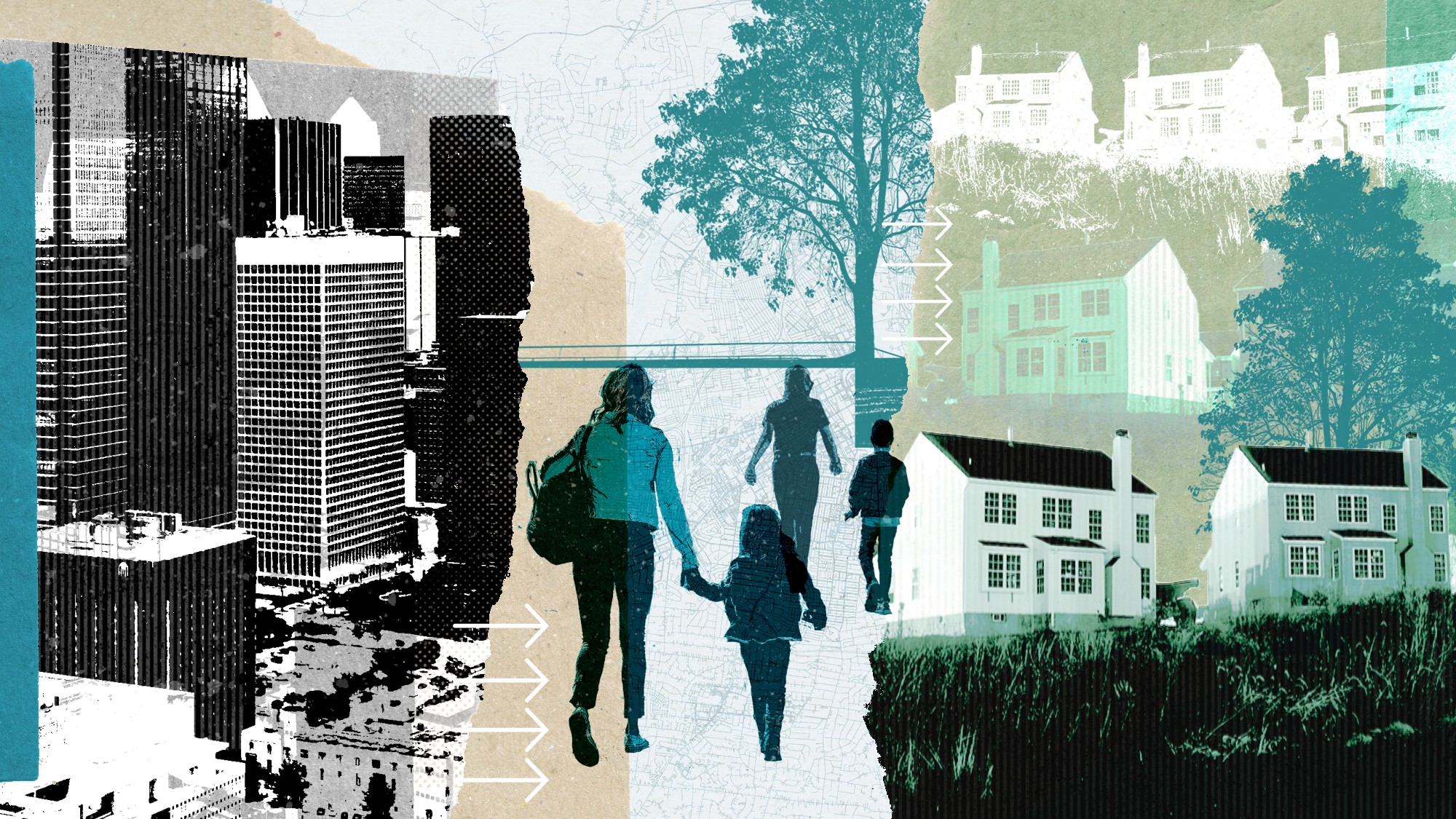America's Weimar moment
The 1930s Germany of Netflix's Babylon Berlin is clearly different than America in 2018. But there are chilling parallels.


The right and left grow more polarized every day, with each side hating the establishmentarian center nearly as much as it does the extremists on the opposite side of the ideological spectrum. As each camp becomes more politically formidable, it draws on covert support from powerful domestic and international allies who have much to gain by the collapse of the liberal establishment. The center, meanwhile, strives to defend the liberal order in the face of powerful challenges but ends up engaging in tactics that violate democratic norms and undermine its own legitimacy, thereby contributing to the very centrifugal forces that imperil the system as a whole.
If this sounds like a distillation of contemporary politics in the U.S. and Europe, that's because it is. But it's also a partial summation of the plot of the best television show to debut this winter. That Netflix's Babylon Berlin takes place in Germany in 1929, just four years before Adolf Hitler's National Socialists rose to power and brought an end to the Weimar Republic, should give us pause. The show is a fractured mirror in which it's possible to catch glimpses of ourselves. The image isn't flattering, but it's very much worth thinking and worrying about.
I say that as someone inclined toward skepticism about viewing President Trump and his European analogues as the leading edge of fascism. There's no reason to suppose that our political polarization and cultural turbulence will end in the same totalitarian and genocidal place that it did in Germany eight decades ago, and ample reason to think that it won't. Yet there nonetheless remain deeply troubling parallels between the pre-history of fascism's rise to power and our own moment, and Babylon Berlin explores them in a uniquely electrifying way.
Subscribe to The Week
Escape your echo chamber. Get the facts behind the news, plus analysis from multiple perspectives.

Sign up for The Week's Free Newsletters
From our morning news briefing to a weekly Good News Newsletter, get the best of The Week delivered directly to your inbox.
From our morning news briefing to a weekly Good News Newsletter, get the best of The Week delivered directly to your inbox.
The show's $40 million budget for 16 episodes makes it the most expensive non-English TV drama series (it's in German with English subtitles) ever produced, and it shows. Across a sprawling urban canvas, incredibly intricate plotlines unfold, with the lives of roughly 20 significant characters intertwining with one another. One plotline involves a police investigation into the blackmail of prominent politicians photographed in kinky sex acts. Another deals with a hijacked train from the Soviet Union hauling banned chemical weapons that right-wing members of the German military and government hope to use in covertly building a revitalized army in flagrant violation of the Treaty of Versailles; the same train also includes a car containing a fortune in gold that supporters of the exiled Leon Trotsky hope to use in their fight to bring down Joseph Stalin.
Then there's the thread involving the Jewish head of Berlin's political police, August Benda (Matthias Brandt), a committed Social Democrat. Benda genuinely cares about the fate of the Weimar Republic and is willing to act ruthlessly in its defense — including conducting an elaborate criminal investigation of the highest reaches of German politics and society, and covering up shocking acts of police brutality against Communists, Nazis, and innocent bystanders alike. For his muscular centrism as much as for his Judaism, Benda is loathed by nearly everyone on every side of the conflicts tearing the republic apart.
The series' male lead, police inspector Gereon Rath (Volker Bruch), is a combat veteran from the trenches of World War I, silently suffering from PTSD, addicted to morphine, and struggling with the war's deadly impact on his own family. Such wounded warriors are present everywhere in Babylon Berlin — moving through the city with ugly physical and psychic wounds, despised by the defeated military elite that yearns for vengeance against the nation's enemies no less than by ordinary Germans who resent being continually confronted by the cost and consequences of a humiliating defeat. In one of the series' most powerful scenes, a psychologist who devotes his life to treating the emotional traumas of these veterans is greeted by the angry jeers of students and colleagues who prefer to see these former soldiers as cowards and parasites.
Rath befriends and ends up working closely with the series' female lead, Charlotte Ritter (the wonderful Liv Lisa Fries), a sharp and ambitious woman from a destitute family who spends her days looking to pick up part-time clerical jobs at police headquarters and her nights working as a prostitute at a lavish cabaret that ends up becoming an important focal point for the unfolding story. Ritter longs to escape the festering poverty and abuse in which she was raised (some of it brutally depicted) to become Berlin's first female homicide detective. One of the series' greatest joys is watching her use her courage and talent to make gradual, grinding progress toward that goal.
Drug-addicted pornographers; proto-Nazi generals and industrialists; grieving war widows; transgender cabaret performers; Stalinist assassins; organized crime bosses; political opportunists grasping for advantage; cop-killing communists; freelance radicals who hopscotch from far left to far right on a whim — the creators of Babylon Berlin conjure an astonishingly seductive, complex, tactile world for us to inhabit.
But is it our world?
In its details, no, not really. But that's just the surface. On a deeper level, there are real confluences.
A centrist establishment that's lost much of its legitimacy and makes things worse by refusing to reflect on its mistakes; demagogues and charlatans eager to exploit a mixture of justified anger and flagrant bigotry; bankers and businessmen willing to throw in their lot with thugs for the promise of further enrichment; religious leaders happy to sell their souls to a devil who promises them protection from cultural trends he exemplifies; throngs of citizens seeking relief from emotional and physical pain in the oblivion of drug addiction; a failure to reckon honestly with the human consequences of monumental foreign policy fiascos; external powers meddling in and manipulating the outcome of democratic decisions in order to advance their own interests — the parallels are numerous and chilling.
For all of Trump's corrosive acts and influence, the impact his presidency on our institutions have so far been fairly minimal. Here we benefit from our long (if imperfect) experience with liberal democratic government. The democratic soil in which the Weimar Republic was planted was comparatively much thinner, making its institutions much more fragile. Yes, we have our own neo-Nazis and their mirror-image would-be totalitarians on the far left. Both make a loud racket online, and occasionally they sow chaos on American streets. But their numbers are tiny — and certainly far tinier than the National Socialist, Communist, and other anti-liberal parties that seriously vied for power during the Weimar years.
Which means that we have reason to expect that the turmoil of our American Babylon will pass long before we reach our own version of 1929, let alone 1933.
In the meantime, marvel at the achievement of Babylon Berlin and ponder the spectacle of world perched on a precipice — a world far too close to our own for comfort.
Sign up for Today's Best Articles in your inbox
A free daily email with the biggest news stories of the day – and the best features from TheWeek.com
Damon Linker is a senior correspondent at TheWeek.com. He is also a former contributing editor at The New Republic and the author of The Theocons and The Religious Test.
-
 Five best ways to save money at the petrol pump
Five best ways to save money at the petrol pumpThe Explainer You don't have to wait for petrol prices to fall to reduce your fuel costs
-
 Exurbs: America's biggest housing trend you haven't heard of
Exurbs: America's biggest housing trend you haven't heard ofUnder the Radar Northeastern exurbs were the nation's biggest housing markets in 2024
-
 How to enjoy a coolcation in Sweden
How to enjoy a coolcation in SwedenThe Week Recommends You won't break a sweat on Lake Asnen or underground at the Adventure Mine
-
 The JFK files: the truth at last?
The JFK files: the truth at last?In The Spotlight More than 64,000 previously classified documents relating the 1963 assassination of John F. Kennedy have been released by the Trump administration
-
 'Seriously, not literally': how should the world take Donald Trump?
'Seriously, not literally': how should the world take Donald Trump?Today's big question White House rhetoric and reality look likely to become increasingly blurred
-
 Will Trump's 'madman' strategy pay off?
Will Trump's 'madman' strategy pay off?Today's Big Question Incoming US president likes to seem unpredictable but, this time round, world leaders could be wise to his playbook
-
 Democrats vs. Republicans: who are the billionaires backing?
Democrats vs. Republicans: who are the billionaires backing?The Explainer Younger tech titans join 'boys' club throwing money and support' behind President Trump, while older plutocrats quietly rebuke new administration
-
 US election: where things stand with one week to go
US election: where things stand with one week to goThe Explainer Harris' lead in the polls has been narrowing in Trump's favour, but her campaign remains 'cautiously optimistic'
-
 Is Trump okay?
Is Trump okay?Today's Big Question Former president's mental fitness and alleged cognitive decline firmly back in the spotlight after 'bizarre' town hall event
-
 The life and times of Kamala Harris
The life and times of Kamala HarrisThe Explainer The vice-president is narrowly leading the race to become the next US president. How did she get to where she is now?
-
 Will 'weirdly civil' VP debate move dial in US election?
Will 'weirdly civil' VP debate move dial in US election?Today's Big Question 'Diametrically opposed' candidates showed 'a lot of commonality' on some issues, but offered competing visions for America's future and democracy